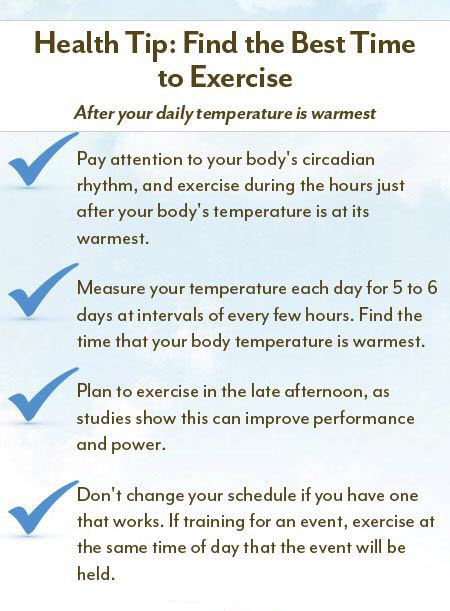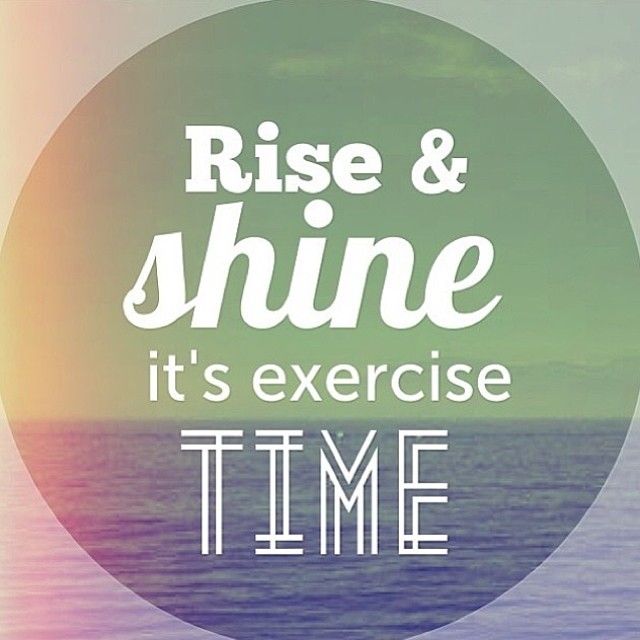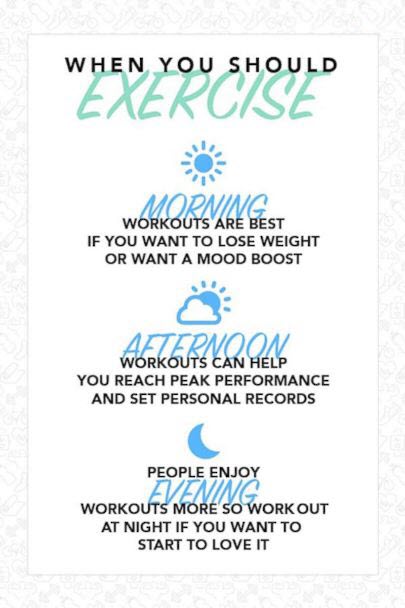What is the Best Time of Day for Exercise?
People train when it’s convenient or when they feel like it, letting their life or emotions dictate when they workout. However, changes in measures of muscular performance as well as hormone levels fluctuate throughout the day. Is it possible to choose a specific time where you have peak performance and hormone levels? What does science say? We will look into ideas behind when to work out and why it is good for you to workout at certain times.
The Regulator of Life: Circadian Rhythms
A circadian rhythm is a 24-hour cycle controlling all the physiological processes of humans and animals. The functions of the circadian clock include organization of sleep and wake patterns, control of your hormones and metabolism, and even athletic performance.
The circadian system becomes responsive and adapts to environmental changes such as light and dark cycles, food intake, and exercise. The most relevant aspects for optimal training time are its effects on regulation of nervous system activity and hormonal production. By understanding these processes you may have a better idea of when to train and how the time of day may affect your results.

Muscular Performance
Have you ever wondered why most sporting events are played in the afternoon, and why most world records are set in the mid-afternoon to evening? Studies in a variety of sports and activities — weightlifting, cycling, etc. — have shown measures of strength and power to be highest in the afternoon/evening compared to the morning. So, if you’re an elite athlete trying to win a competition or set some records, this time of day may help.
Optimal body temperature for training normally occurs during this time, providing you optimal nerve conduction velocity, joint mobility and safety, metabolism, and muscular blood flow. Your core body temp is low at night, rises quickly upon awakening, and reaches a maximum in the evening. Keep in mind that activities requiring strength and power have been shown to be more affected by time of day than other forms of activities, such as endurance events.
A recent study at Appalachian State University found that morning workouts are ideal if you want to get the best sleep at night. Researchers tracked the sleep patterns of participants who worked out at three different times: 7 AM, 1 PM or 7 PM.
What they discovered was that people who exercised at 7 AM slept longer and had a deeper sleep cycle than the other two groups. In fact, the morning exercisers had up to 75% more time in the reparative “deep sleep” stage at night. This is so impressive, and a huge leverage point if you’re interested in a longer life and a better body.
Unfortunately, morning workouts are not ideal for everyone, even if they are scientifically best. We have put together a list of advantages for workouts during any time of day as well as disadvantages. These will help you decide what time would be best for you from a scientific perspective.
Morning Workout

Advantages:
● Your testosterone levels are at their highest in the morning, so you have an optimal environment for muscle growth and strength.
● The following 2–3 meals after your workout will largely be absorbed for muscle recovery and building new muscle tissue. This decreases the chance for fat storage as most of the nutrients are going to be used.
● It is good for adding muscle size as you have the whole day to supply your body with the necessary nutrients.
● After your workout the body releases a hormone called serotonin, which is responsible for the happy feeling. So, you should have a pretty positive start of the day.
● Your workouts should be more productive as there are fewer people in the gym in the morning. You will not have to wait to use the machines or free weights, which is great if your workout consists of drop sets and/or super sets.
● People who exercise in the morning are usually quite consistent with their workouts. This makes it easier to make new friends, which makes the whole workout much more pleasant.
● You are more likely to stick to your workouts if you go in the morning, as there is less of a chance that “unexpected events” will prevent you from having your workout.
Disadvantages:
If you are not a morning person you might feel groggy and out of energy. This will significantly impact the intensity of your workout and chances are you will not be able to push yourself hard enough.
Although a proper warm up is essential prior every workout, a particular emphasis is put on the morning ones as your body temperature is at its lowest. If you have the habit to jump straight into lifting, then you run a higher chance of getting an injury.
● Your blood pressure is highest in the morning. So, if you have any heart problems, you might want to move your workout later in the day.
● Generally speaking, it is good if you could have at least 2 solid meals before an intense workout. By doing so you are supplying your body with energy after the night fast and your workout should be more intense. If you work out in the morning, it is highly unlikely that you are able to get 2 meals prior to that.
● After an intense workout your muscles need to rest. If you are going to spend the rest of the day doing heavy physical activities (such as working on a construction site), then a morning workout might not be your best option.
Afternoon Workout
Advantages:
● Body temperature is at its highest, meaning that there is less chance of an injury (proper warm up is still necessary).
● Mental focus and physical functioning are at their top level, giving you a good ground for optimal performance.
● Pain tolerance is at its highest level, meaning that you can push yourself harder and train more intensely. This is an excellent opportunity for breaking plateaus by increasing the weight you usually train with.
● An afternoon workout may provide you with a good escape from the daily routine. You will feel refreshed and more energetic to continue with your work, studies, etc.
Disadvantages:
● Testosterone levels are back to normal, so you will not be able to reap the morning benefits.
● Similarly to the morning workout, if your training is followed by heavy physical activity, your body will have some difficulties to recover.
● An afternoon workout is often inconvenient due to work, studies and other commitments.
Evening Workout
Advantages:
● Good for muscle size as the workout is often followed by rest or sleep. By doing minimal activity your body can efficiently concentrate on repair and construction.
● Performance is considerably high in the evening, even though it might feel harder to get to the gym. By having more strength you are able to push yourself harder for a longer period of time.
● It is good for fat loss as you are burning the carbohydrates in your system and your body continues to run on fat, provided that no or very little carbohydrates are supplied post-workout.
● Depending on how your body functions you might find it easier to fall asleep after an evening workout. Bear in mind that you might also experience the opposite effect and have problems falling asleep. This point is a bit controversial and will depend on the type of person you are and your nervous system.
Disadvantages:
● You might not be able to provide your body with 2–3 meals after the workout, which might impact muscle building to an extent. In those cases using slow digesting protein, such as casein, is a great option. This way you ensure constant flow of amino acids to the body throughout the night.
● Testosterone levels are at their lowest.
● Unexpected events such as family commitments or low energy levels are some of the obstacles that could make it more difficult for you to go to the gym.
● Gyms are usually packed in the evening, meaning that you will often have to queue for machines, weights or other equipment, especially if you are doing drop sets or supersets. All this may lead to an inefficient workout with long periods of rest.

All those positive and negative points might seem a bit confusing, but at the end of the day the timing of your workouts are largely determined by your lifestyle. The points above are provided to give you some guidance and provide you with a more clear picture, but ultimately you have to go and train at different times to know for sure. And when you do, you will just ‘feel’ the right time frame.
To recap, If your goal is fat loss the best training window would be between 7 AM to 9 AM. For optimal results in muscle and strength gains your best training window is between 5 PM and 7 PM and if you finish your workout 6 hours before you go to bed you’ll get the most optimal sleep and recovery where the results really come from.
